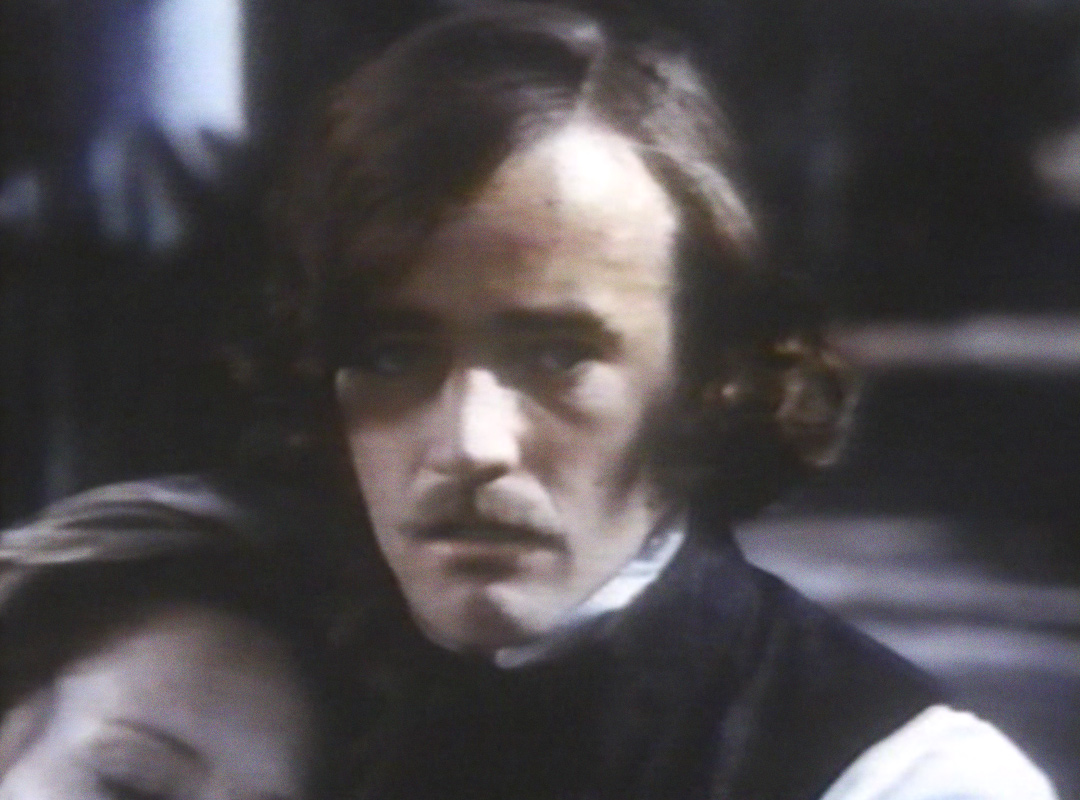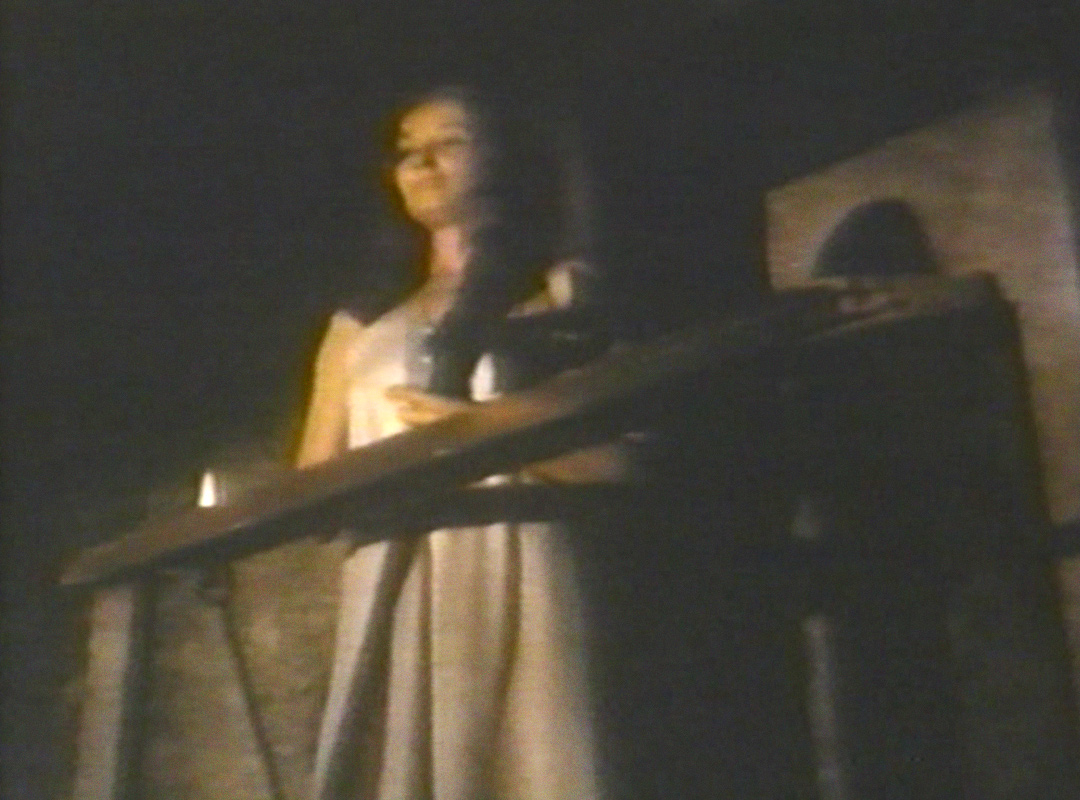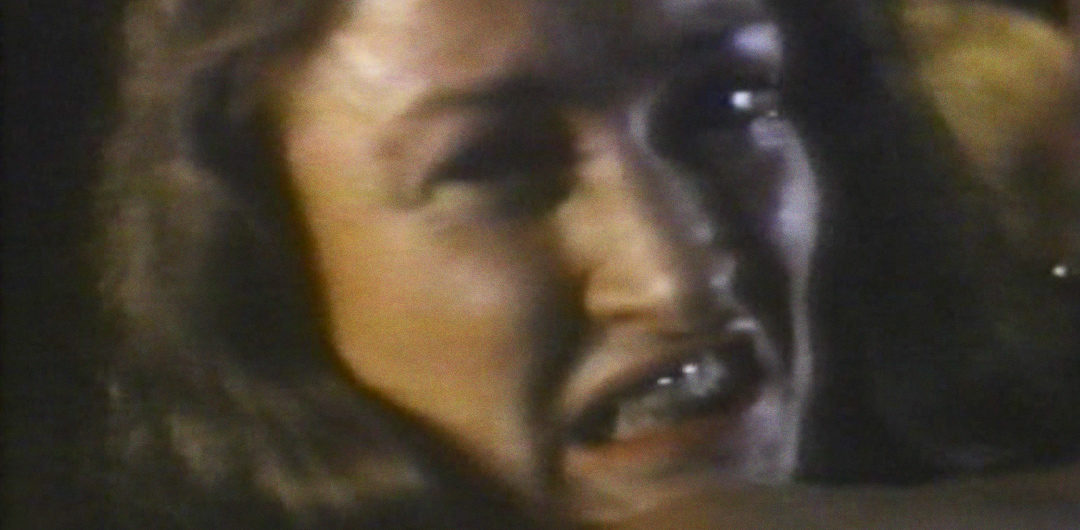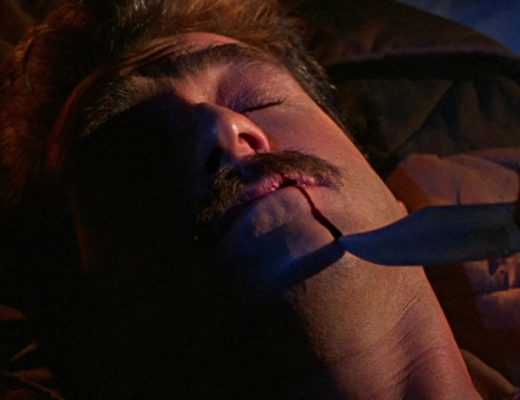Most people will eject this film after the first six minutes. I can’t relate.
A man in a cape speaks directly to us. He is outside, amongst nature, and yet, his voice appears to be originating from a small closet. At the end of a brief soliloquy, the man states, “Edgar Allan Poe was no doubt a neurotic.” Swiftly, Lenore bounds through a garden. She frolics with Edgar, they kiss, and discuss his career. Then, she collapses. A theme song echoes Neil Diamond on a very off day. Poe peers into the camera, Oliver Hardy-style. Freeze.
The Spectre of Edgar Allan Poe does not convey its dirt-cheap tenacity with a shout; it does so with a whisper. And that, perhaps, is why most people may reject it. Their loss. A fictionalized attempt by one-time producer/director/scripter Mohy Quandour to explain the origins of Poe’s fictionalized muse, Lenore, Spectre concerns itself with dark nights, a sinister asylum, and Caesar Romero as a mad psychiatrist. There’s also a snake-pit, an inmate who sounds and acts like a werewolf, and a climactic mini-symphony of splendid dimestore violence. However, all of this is ornamental. The film’s true confidant, the key element which distinguishes it from any number of tedious obscurities, is its hospitable disposition.
The 1970s were a lovely decade for true-to-life trash cinema. From The Zodiac Killer to The Force Beyond, it’s nearly impossible to experience one of these films without some level of residual reward or thrill or warmth, based on sheer concept (and context) alone. Spectre is no exception. Only, it does things a bit differently.
Rather than focusing on action, intent, or authentic details, this film constructs a space — one that’s oblivious to everything but itself, existing only to provide us with a floating, off-key ambience for 80 minutes. It’s indistinct. It’s undemanding. It’s wonderfully (and sometimes laughably) cheap. And, it never tries to bite off more than it can chew. The overriding emphasis is all gloomy hallways, mismatched technique, and droning sentiment; not bizarro visuals, copious gore, or legit impact. This unadorned approach serves as a nice complement to the film’s minor exploitive qualities. The arc is refreshing. The payoff is satisfying. It reveals itself as not a movie to lose all sense of reality with, but a movie to quietly unwind with.
And that’s why I can relate.
The Spectre Of Edgar Allan Poe is an ideal late-night companion, a self-sufficient dab of dreamy, no-questions-asked amusement. It’ll never set the world on fire, but sometimes, that’s not necessary. Take a load off and enjoy.






